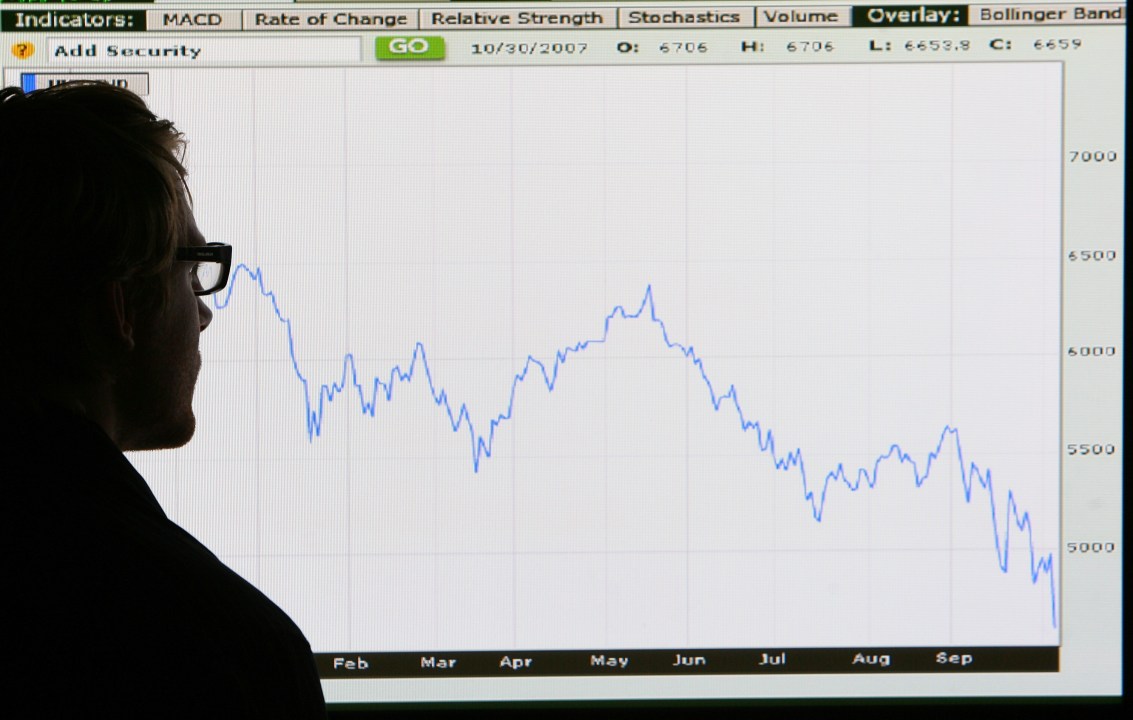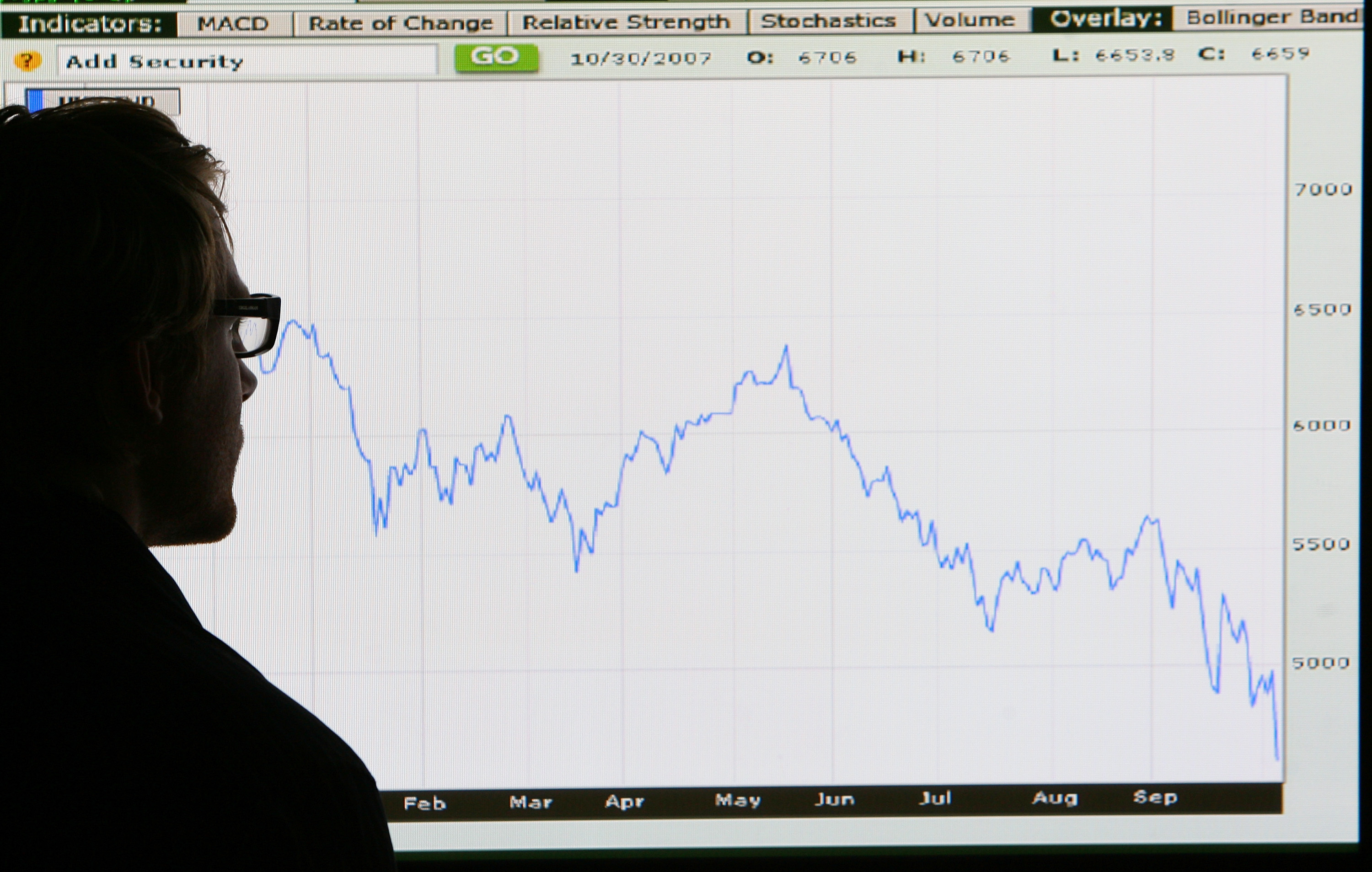 One of the biggest dangers posed by the credit crunch is the instinct to introduce regulations that would stifle any economic recovery. Those whose memories only really cover the boom years might think the mistake was light-touch regulation and that you now need heavier regulation. That’s why the debates in the Lords on this subject are far more informative than those in the Commons: the upper chamber has people who are veterans of economic warfare and know the danger of jumping too much the other way. Here are some edited extracts of my interview with Lord Lawson (read the full transcript on the Spectator Inquiry wiki site) who makes the case for a British Glass Steagal Act.
One of the biggest dangers posed by the credit crunch is the instinct to introduce regulations that would stifle any economic recovery. Those whose memories only really cover the boom years might think the mistake was light-touch regulation and that you now need heavier regulation. That’s why the debates in the Lords on this subject are far more informative than those in the Commons: the upper chamber has people who are veterans of economic warfare and know the danger of jumping too much the other way. Here are some edited extracts of my interview with Lord Lawson (read the full transcript on the Spectator Inquiry wiki site) who makes the case for a British Glass Steagal Act.
Do you think the FSA was structurally unable to see what has happening?
Well it has admitted that it completely failed over Northern Rock but in fact it failed over everything, not just Northern Rock.
However, having said that, the bankers themselves were obviously extremely culpable. Unfortunately I think it has become worse because we live in an age now when the acquisition of wealth seems to count more than reputation. They were taking ever greater risks, and if the risk went wrong their reputation would be down the drain. But they got the money, so that was all that mattered. So the bankers were extremely culpable.
There is one other thing too. During the 1930s slump, in the United States there were a whole lot of bank failures which made the depression very much worse and that was because in those days the Americans had a lot of small banks. The UK already had a very consolidated banking system so we didn’t really have any banking failures in the 1930s. Because the Americans were concerned about what happened to the banking industry, they passed the Glass Steagall Act in 1933 which basically said that retail deposit, commercial banking, financing of industry and so on was one thing, investment banking was another, they have to be separate and no bank could do both.
We didn’t do that in Britain. Partly because we didn’t have the experience of the banking failures in the 30s and partly because anyhow, by custom and practice, the commercial banks and the merchant banks (as they were called in those days), were separate anyway and they remained separate for many years. They only came together much later. Glass Steagall was I think fulfilling a very useful purpose, but it was repealed by Clinton.
The fact of the matter is that investment banking is innovative, there’s nothing wrong with it, rather speculative often but it’s high risk, high reward. Commercial banking is lower risk, lower reward. It is commercial banking which is absolutely vital. When the commercial banking system goes down that is what creates the systemic risk, because they are responsible for maintaining the payment system and where people deposit their money. People don’t deposit money in an investment bank. It is critical, it is a real problem, if the commercial banking system is threatened. So you don’t want to increase the risk of that happening by having it joined on to these high risk, high reward, innovative, buccaneering set-ups.
So do you think in Britain they should be separated?
I think they should be separated and I’ll tell you another benefit of doing so. The government is not planning to separate them, the government as I understand it thinks that they can somehow have a ring fence within the universal bank. They say, “well the investment banking part of the universal bank has to hold much more capital because it is a riskier business”. But I don’t think that is workable and anyhow it is still putting the overall bank at unnecessary risk and if they are completely separate organisations it wouldn’t.
Spain and Canada managed their banks all right didn’t they?
Yes, they did a heavier type of regulation, they have had banking crises before and they have learned from them.
Was it more regulation, or better regulation?
It was the right kind. There is a real risk now of attempts to ensure that the banking crisis doesn’t happen again ending in excessive regulation. I think you need to step back a bit and say we need prudential regulation. If the core commercial banking system goes belly-up that is a huge systemic risk not just to the banking sector but to the whole economy. If that happens you will have to bail them out at the taxpayers’ expense. To try and avoid you need an adequate degree of supervision as the quid pro quo for having to bail them out. But it is only the commercial banking system which poses this systemic risk, therefore that is the only area that needs very close supervision and prudential regulation. If you don’t have this separation [of commercial and investment banking] then there will be a heavy regulation of hedge funds, of investment banking, of everything, which is quite unnecessary. This is why you should separate it out from the commercial banks. If only investment banks go bust, and the commercial banks are strong, there isn’t a systemic risk.








Comments